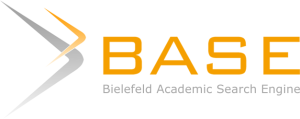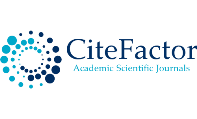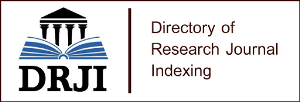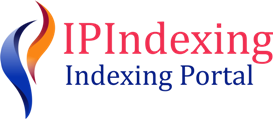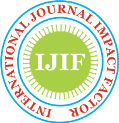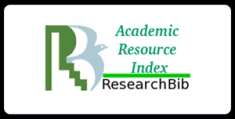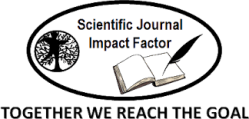Publication Ethics
Publication Ethics
International Journal of Medical Studies (IJMS) is committed to delivering quality basic and applied research results in medical science and related subjects to the world and therefore all submissions will be peer-reviewed. IJMS adopts the following statement for guidelines on publication ethics.
International Standards for Authors:
- Report their work(s) accurately and submitted manuscripts must be the original work of the author(s). Review articles should include the important work of the researchers in a field and should be objectively written.
- It is unethical to submit a manuscript to more than one journal simultaneously. Submission of an article implies that the work described has not been published previously (except in the form of an abstract or as part of a published lecture or academic thesis), that it is not under consideration for publication elsewhere, that its publication is approved by all authors and tacitly or explicitly by the responsible authorities where the work was carried out, and that, if accepted, it will not be published elsewhere in the same form, in English or in any other language, including electronically without the written consent of the copyright holder.
- Acknowledge the sources of data used in the development of the manuscript.
- Any change to the author list after a paper is accepted should be requested by the corresponding author and agreed on by all authors before the paper is published.
- Plagiarism is a serious violation of publication ethics.
- The research being reported should have been conducted in an ethical and responsible manner and should comply with all relevant legislation.
- Researchers should present their results clearly, honestly, and without fabrication, falsification or inappropriate data manipulation.
- Researchers should strive to describe their methods clearly and unambiguously so that their findings can be confirmed by others.
- Researchers should adhere to publication requirements that submitted work is original, is not plagiarized, and has not been published elsewhere.
- Authors should take collective responsibility for submitted and published work.
- The authorship of research publications should accurately reflect individuals’ contributions to the work and its reporting.
- Funding sources and relevant conflicts of interest should be disclosed.
International Standards for Reviewers:
- That all manuscripts are reviewed in fairness based on the intellectual content of the paper regardless of gender, race, ethnicity, religion, citizenry nor political values of author(s).
- That any observed conflict of interest during the review process must be communicated to the Editor-in-Chief. Also, all information pertaining to the manuscript is kept confidential and any information that may be the reason for the rejection of publication of a manuscript must be communicated to the Editor-in-Chief.
- Cope Ethical Guidelines for Peer Reviewers are available on the COPE website for more details.
International Standards for Editors:
- That all manuscripts are evaluated in fairness based on the intellectual content of the paper regardless of gender, race, ethnicity, religion, citizenry nor political values of authors.
- That information pertaining to manuscripts is kept confidential and any observed conflict of interest pertaining to manuscripts must be disclosed.
- The Editorial Board takes responsibility for making publication decisions for submitted manuscripts based on the reviewer’s evaluation of the manuscript, policies of the journal editorial board and legal restrain acting against plagiarism, libel, and copyright infringement.
- This journal is following of Committee on Publication Ethics (COPE) and complies with the highest ethical standards in accordance with ethical laws (COPE).
- Editors are accountable and should take responsibility for everything they publish.
- Editors should make fair and unbiased decisions independent from commercial consideration and ensure a fair and appropriate peer review process.
- Editors should adopt editorial policies that encourage maximum transparency and complete, honest reporting.
- Editors should guard the integrity of the published record by issuing corrections and retractions when needed and pursuing suspected or alleged research and publication misconduct.
- The editors reserve the right to make minor editorial changes to any format, punctuation, grammar, or spelling errors before publishing the article.
- Editors should critically assess the ethical conduct of studies in humans and animals.
- Editors should have appropriate policies in place for handling editorial conflicts of interest.
----------------------------------------------------------------------------------------------------------------------------------------------------------
The Process for Handling Cases Requiring Corrections, Retractions, and Editorial Expressions of Concern
Honest errors are a part of science and publishing and require publication of a correction when they are detected. Corrections are needed for errors of fact. Matters of the debate are best handled as letters to the editor, as electronic correspondence. Updates of previous publications are considered a new publication rather than a version of a previously published article.
Errors serious enough to invalidate a paper's results and conclusions may require retraction. However, retraction with republication (also referred to as “replacement”) can be considered in cases where the honest error (e.g., a misclassification or miscalculation) leads to a major change in the direction or significance of the results, interpretations, and conclusions. If the error is judged to be unintentional, the underlying science appears valid, and the changed version of the paper survives further review and editorial scrutiny, then retraction with the republication of the changed paper, with an explanation, allows full correction of the scientific literature. In such cases, it is helpful to show the extent of the changes in supplementary material or in an appendix, for complete transparency.


